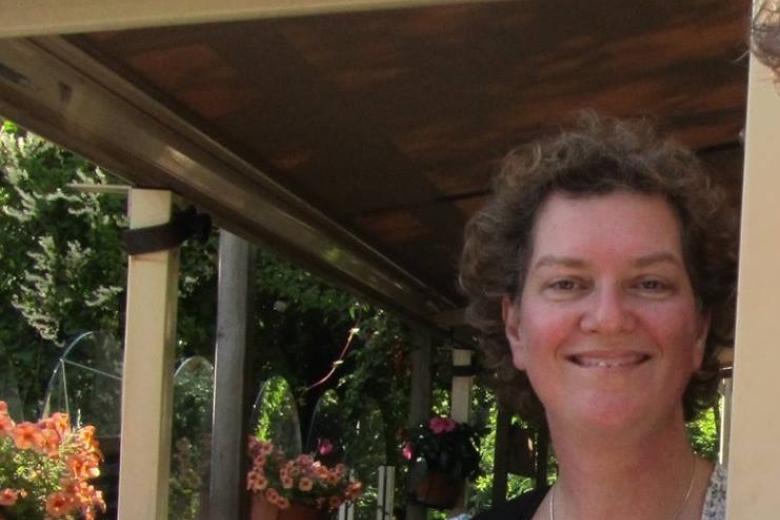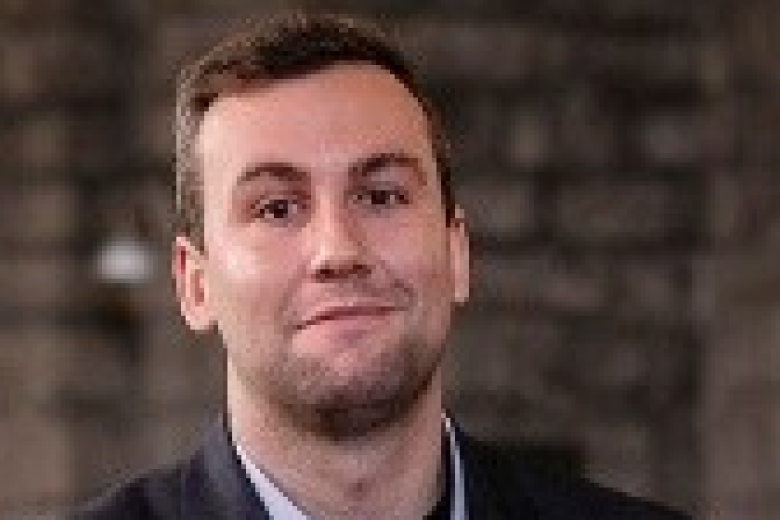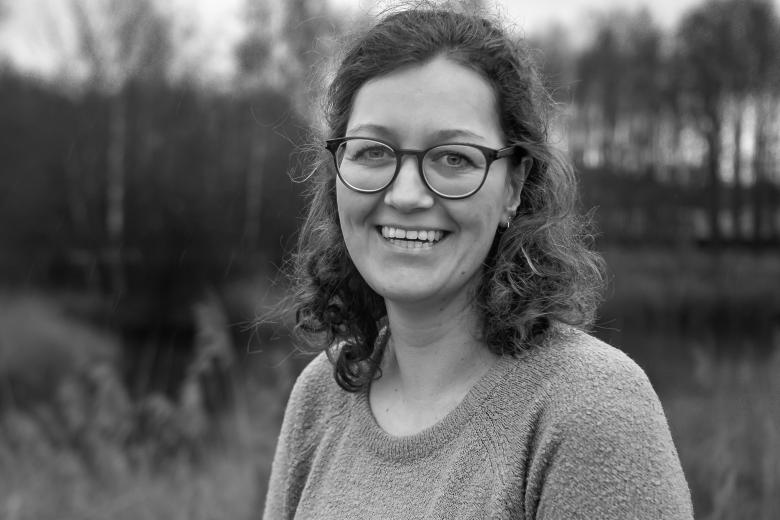1 study & 3 jobs: Health Sciences
This column features three alumni from the same study programme. This time: alumni from the BA Health Sciences at UM.
Meet...
Christel van Gool
Graduation year: 1995
Current place of residence: Maastricht, the Netherlands
Position: Senior Lecturer of Epidemiology
Employer: Maastricht University

Jim Retra
Graduation year: 2015 (followed by a Research Master's in Health Sciences, 2017)
Current place of residence: Tilburg, the Netherlands
Position: Adviser in the social domain
Employer: Zet

Lisanne Peters
Graduation year: 2014
Current place of residence: Geertruidenberg, the Netherlands
Position: Support Specialists Team Leader and Support Offer Staff Member
Employer: Samenwerkingsverband Primair Onderwijs 30 06

At the time, why did you decide to study BA Health Sciences at UM?
Christel: There were far fewer degree programmes from which to choose back when I was a student. I did know that I wanted to do ‘something’ related to health. Two friends of mine were already studying in Maastricht: one was studying Law, and the other Medicine. I had been to Maastricht on numerous occasions, and I thought it was a nice city: not too big, not too small. And the major advantage: in the Health Sciences degree programme at UM, you did not immediately have to choose a specialisation; the first year featured a wide range of subjects, followed by a narrower focus and eventually you would choose a direction. With six years’ worth of student grants (that was still possible in those days!), I opted for two specialisations: Biological Medicine and Movement Sciences.
Jim: Because I have family members working in healthcare in the broadest sense, I have always had a lot of exposure to healthcare and health. Conversations during meals were often about care-related issues. The deciding factor for me to choose this academic path was the many options offered by the Health Sciences programme at UM. The programme ties in with my current work because of the interesting intersection between care and well-being. In addition to knowledge, I also gained skills during my studies that I can really put to use in my job. For example, how to give presentations, the practical approach of problem-based learning for solving complex issues, collaborating with other students, critical reflection and so forth.
Lisanne: During my secondary school year, I was convinced that I wanted to become a manager in a hospital. I could not think of a better place to do that than at a faculty located at a hospital [the Faculty of Health, Medicine and Life Sciences at UM, which offers the Health Sciences programme, is next door to Maastricht University Medical Centre or MUMC+ - ed.]. In addition, it appealed to me that the first year is very broad, and health is discussed from different perspectives. I also liked the warm and friendly atmosphere in the city of Maastricht; I immediately felt at home, really.
During my first year, I chose the specialisation Health Care Policy and Management. Gradually, however, I discovered that this programme did not suit me. I wanted to learn more about people, and it fell short on that front. Consequently, I did my second year again, this time with Mental Healthcare as my specialisation. I did my internship in special primary education, where I observed that education is an interesting and dynamic field. Now that I can combine a managerial position with improving education and thus contribute to the development of children, everything has fallen into place. In other words, being the manager of a hospital no longer appeals to me.
What makes your job so enjoyable?
Christel: There is a lot of variety in my job. On the one hand, I interact with many different young people, and on the other I also see how the university is constantly developing and professionalising. Graduates of the Health Sciences programme have enough to do -- especially when I look at what is happening in society. Take all of the challenges involving disease, health and the government's choices to get --and keep -- people healthy and in a way that is affordable for all parties!
Jim: The great thing about my job is the range of activities related to various themes, all of which have their own issues. Plus, I work in a small organisation, which means I can advance quickly and operate on every level in the organisation, and make my contribution. The best is when you can deliver work that makes a tangible difference and you can complete assignments with satisfaction. It is also nice to be able to alternate between complex issues that require a considerable amount of time but ultimately yield a good end product such as a report, and doing work that has immediate results. At Zet, I have the privilege of making the podcast series Nieuwsgierige Gasten (‘Curious Guests’) with my colleague and fellow Health Sciences graduate Thijs van de Schoot. In our first season, we went in search of the ‘purpose economy’ in the province of Noord-Brabant. We explore this complex concept together with researchers, experts on the theme, directors and administrators, social entrepreneurs, policy officers and others, and more.
Lisanne: There are numerous factors that make my job really enjoyable. First of all, I have absolutely wonderful colleagues; a team that truly tackles the job together, supports each other and helps each other grow. Secondly, I get a lot of energy from the variety of the job - each day is completely different - and the large network with which we cooperate and connect with. Education is honestly a really amazing field, where people work together with tremendous enthusiasm to do their best each and every day. In my job, I definitely benefit from everything I learned in my degree programme, especially how it helped me improve my analytical skills, critical ability, and interviewing techniques during the exercises with patient interactions.
What is the most extraordinary, memorable or wonderful thing you have experienced in your job?
Christel: My children sometimes tell me about running into someone their age -- for example through their circle of friends, or during a night out or at university -- and hearing what I meant to them, or simply that I was a nice person. The best compliment that I ever received through the grapevine was that ‘the course was always fun, but we were definitely expected to work hard'.
Jim: That I was able to inspire people through my efforts, and to help them with their social issue. I focus on the theme of social impact and I train citizens and/offer training to help citizens’ initiatives to tell and explain their impact story more effectively. I am proud when I subsequently hear participants describe what and how they contribute to society with their initiative, and it is deeply rewarding for me. I can go home satisfied. One of the initiatives is Stichting Weeshuisjes (‘Abandoned Houses Foundation’), which makes vacant small-scale cultural heritage available to initiators who wish to contribute to the community in their own unique way. This could be an art project, or a podcast series, or creating a place where local residents can meet for a coffee.
Lisanne: That, if people and organisations truly dare to connect and work together, it is usually possible to provide education for a child in an appropriate place with appropriate support. That is what we are doing it for, and those are the successes that we celebrate. In addition, I enjoy being in a leadership position. Although I have not done this for very long, supporting people, forming a team and being able to help ensure that they enjoy their work is special.
Where do you see yourself in the future?
Christel: I have no idea. I am not that goal-oriented with respect to my development. The opportunities that I was offered and seized in the past either came to me or I spotted them. In any case, I hope that in 10 years' time I will still be here, helping people to gain and assimilate important knowledge. And having a lot of fun in the process!
Jim: I see myself occupying a policy function within a care organisation or hospital in the future. However, given my wide range of interests, I could also be working just as well within another sector, such as local governments. Having worked extensively with municipalities and provinces, my interest in a position within those sectors has also increased.
Lisanne: I do not have a specific plan or a specific position that I am really keen on. Plus, there are lots of options in my current place of work. Above all, I hope that I can continue to learn and develop myself in the future. I enjoy taking on challenges, and I feel strongly supported here at the moment. I also wish that challenge for my future self, wherever or in whatever position I am working.
Also read
-
Andrés Caceres Solari on No room for Human Rights in Gaza and Ukraine: How the Law Legitimizes Urban Devastation
Pick Our Brains Session with Andres Caceres Solari

-
AMIBM hosts the final Realise-Bio conference
The Aachen Maastricht Institute of Biobased Materials (AMIBM) hosted last week the third and final Realise-Bio annual conference, bringing together the Dutch and German bioeconomy ecosystems at the Brightlands Chemelot Campus.

-
Macrophages as key to treating liver fibrosis
Sabine Daemen is researching how certain macrophages can slow down fatty liver disease and fibrosis in order to develop new therapies.
